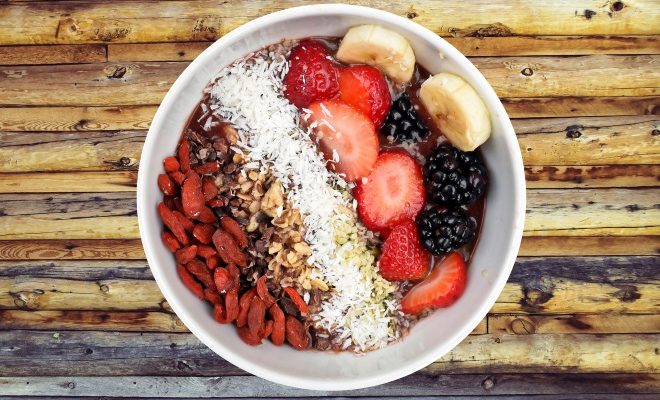
Health x Wellness
Reasons to Switch to a High Fiber Diet
Fiber helps in your weight loss program and optimises your health
Fiber is vital for a healthy digestive system and helps to decrease your cholesterol level. Water-soluble and water insoluble are two types of fiber.
Inadequate intake of fiber increases your risk of medical conditions such as heart disease and cancer. It also contributes to weight gain and causes you to have poor bowel movements.
Water-soluble foods include fruits, vegetables, legumes such as dry beans and oats . These soluble fiber absorbs water during digestion and dissolves into gel-like texture, slowing down the digestion process. This helps you to feel full for a longer period, preventing you from snacking, and aiding you in losing weight.
On the other hand, insoluble food sources remain its usual state when digesting food. They comprise of dark leafy vegetables, green beans, celery and carrots. These foods cleanse your digestive system, allowing you to relieve and avoid constipation. You might also want to exercise consistently and stay hydrated.
Here are some reasons on why you should consider increasing your fiber intake:
Blood Sugar Control
Fiber helps to prolong the process of breaking down carbohydrates and absorption of sugar. This allows you to have better control over your blood sugar levels.
You might want to consume cereals instead of white bread for breakfast or add more beans or brown rice in your diet. At the same time, cut down on sugary foods to prevent a spike in your sugar levels. Make sure to eat whole fruits as juices do not contain fiber.
Heart Health
If you want to improve your diet for a better heart health, soluble fiber is vital in enhancing your cholesterol levels by diminishing your dietary cholesterol. It lessens the risk of contracting various cardiovascular diseases. Besides lowering your blood pressure as well, fiber also helps in weight loss.
By reducing blood cholesterol, it minimises the cholesterol deposits in the arteries. Soluble fiber comes from oats, barley and fruits such as bananas.
Aids Healthy Weight
Fiber stays longer in your stomach and requires a longer time for digestion. This prevents you from overeating during the day. Keeping your calories in control, your body will be able to maintain its fat burning capacity.
Aim to achieve a minimal intake of 20g of dietary fiber for women and 26g for men. Consuming two servings of each fruit and vegetables daily is not enough in providing you the recommended intake for fiber.
Improves Bowel Movement
Fiber cleanses the digestive tract, allowing the toxins to be flushed from your system without feeling constipated. If you have problems with your bowel movement, you may want to start eating foods rich in fiber such as carrots or whole grains. Increasing your intake of fiber helps to soften your stools, thus relieving your constipation issues. Do add fiber slowly so that your body will be able to adjust to it.
Here are tips on how you can incorporate fiber into your diet:
Start your day with Fiber
Start your day with complex carbohydrates, which contains a high amount of fiber. Whole grain and unsweetened cereal are good sources of high-fiber cereals. You can also add yoghurt, spices or herbs to your cereal if you want to enhance its flavouring.
Besides cereal, you can also make sandwiches with whole wheat bread. Include vegetables or fruits in between the layers so that you will be able to consume the daily recommended servings of fiber.
Drink Lots of Water
When you’re on a high-fiber diet, your digestive system needs to get used to the increased intake of fiber-rich foods. You should also increase your water consumption so that water can help to soften your stools and prevent constipation.
Water helps fiber in the facilitation of processing waste removal in your body. The majority of the fluid is extracted in your colon for body functions. Inadequate water consumption will cause constipation, which could lead to severe diseases such as hemorrhoids.
Eat Healthier Snacks
Consuming unhealthy snacks such as potato chips will only add onto your calories intake and does not provide you with the required nutrients or fiber.
Reduce your consumption of sugary and caffeinated drinks. The latter escalates urine production that reduces the fluid substance in your stools. Snacking on high-fiber sources such as fruits, vegetables, nuts and beans help you to stay satisfied in between your meal timings.
Switch to Whole Grain Products
Gradually switch from white bread, rice and pasta to whole grain products such as brown rice or whole wheat bread and pasta. These foods are rich in fiber, making you feel full longer and providing you ample energy for the day.
Explore other sources of fiber that can be incorporated into your diet. Besides adding fiber into your food, you can also include it in drinks by concocting fruits-infusion drinks.









